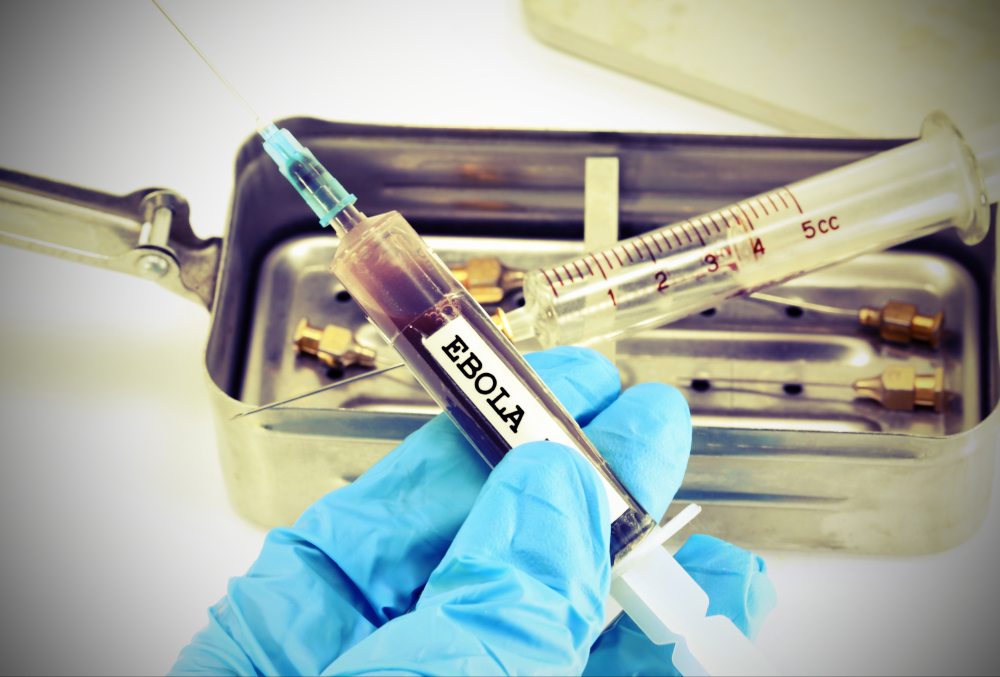EVD is the full form of Ebola Virus Disease. It is a rare condition that is affecting both humans and non-primates. This virus has originated from the sub-saharan african regions.
Ebola virus disease was first discovered in 1970 in the Democratic Republic of Congo. This disease has been causing mortalities since then in people. The current research states that Ebola virus is an animal-borne disease that can be transferred from monkeys, apes and bats.
Here are some common types of ebola virus disease:
- Ebola virus
- Sudan virus
- Bundibugyo virus
- Bombali virus
- Reston virus
- Tai Forest virus
Table of Contents
What is Ebola Symptoms?
Given below are some of the ebola symptoms that you need to keep an eye on:
- Headaches
- Sore throats
- Canker sores
- Weakness
- Join pain and muscle aches
- Lack of appetite
- High fever
- Stomach pain
Dr. Nursum Iqbal of MD center, who is an internal medicine specialist says that If not catered to on the right time, ebola virus disease can cause severe complications such as bleeding from the eyes, nose and ears. People can vomit, or cough blood in these scenarios and might also suffer from rashes as well.
Give a Read: Most Common Monsoon Disease in Pakistan
How is Ebola Virus Disease Involved?
Despite popular belief, ebola virus disease is not a contagious health complication like infleunza, measles and common colds. The common mode of transmission of ebola virus disease is a close contact with monkey, fruit bats and chimp.
The transmission of ebola virus disease is the same for every infected person. Here are some of the mode of transmission for this disease:
- Pee
- Poop
- Tears
- Blood
- Sweat
- Vomit
- Amniotic fluid
- Semen
- Vaginal fluids
- Pregnancy fluids
- Breast milk
In case a person is suffering from ebola virus disease, but show no symptoms then the person is unable to transfer the disease to another person.
Who is at Risk for Ebola Virus Treatment?
Ebola virus disease can get transfer from personal contact with the infected blood or body fluids. But the risk of ebola virus treatment increases by ten folds if you are in:
- Close proximity to the caregiver
- If you are a healthcare worker who has been taking care of ebola patients
- A volunteer who is on high alert because of the disease outbreak
- Working in a lab where there are ebola virus samples stored
- Your family member or friend has ebola
Read more: Covid-19 Delta Variant
What is Ebola Virus Treatment?
Currently, there is no exact or defined treatment method for ebola virus disease. Although researchers are working on the development of a drug therapy that can prove to be helpful in catering to the complications caused by this virus.
There are currently two drug treatments that have been approved by the FDA for the treatment of ebola virus disease. One is Inmazeb and the other is Ansuvimab.
Inmazeb is a combination of three monoclonal antibodies (atoltivimab, maftivimab, and odesivimab-ebgn). On the other hand, ansuvimab is a monoclonal antibody that is given to the patient in the form of an injection.
Both of these drugs help to block the virus so that it does not affect the cell receptors and therefore harm is minimized.
According to the healthcare experts of KRL Hospital, ebola virus disease can be reduced or minimized with the help of the fluids, blood transfusions, blood pressure medications and oxygen.
Also Read: Top 10 Rare Diseases in the World
What are Health Complications due to Ebola Virus Disease?
In case you are suffering from ebola virus disease, you are at risk for the following complications:
- Septic shock
- Hypovolemia – a condition in which a person suffers from low levels of blood and fluid
- Multi-organ failure
- Coma
- Electrolyte imbalance
- DIC – a condition in which there are clots formation in the blood vessels
- Hypoxia – low blood oxygen levels
- Refractory shock
People can also suffer from the following conditons if they are recovering from ebola virus disease:
- Tremors
- Memory loss
- Seizures
- Headaches
- Meningoenncephalitis
- Cranial nerve problems that can cause hearing loss and vertigo
What is the Preventions for Ebola Virus Disease?
It is possible for you to prevent ebola virus disease with the help of the following steps:
- Avoid contact with those people that either has or have recovered from ebola virus disease
- Do not travel to those areas where there is a ebola virrus outbreak
- Avoid coming in close contact with the sheets, clothes and needles that are infected by ebola virus
- Do not go to the burials where ebola virus have been buried
- In case you are travelling to an area where there is a speculation of this disease, avoid close contact with bats, monkeys and gorillas.
A Word from Healthwire
Ebola virus disease is a disease that has been affecting millions of people around the globe. This disease if not catered to at the right time with the right diagnosis can lead to severe complications.
It is best to consult with a healthcare specialist if you witness any of the above mentioned signs and symptoms. You can also reach out to the best general physicians via healthwire. They will guide you better in these matters.
Till then stay happy, stay safe!
